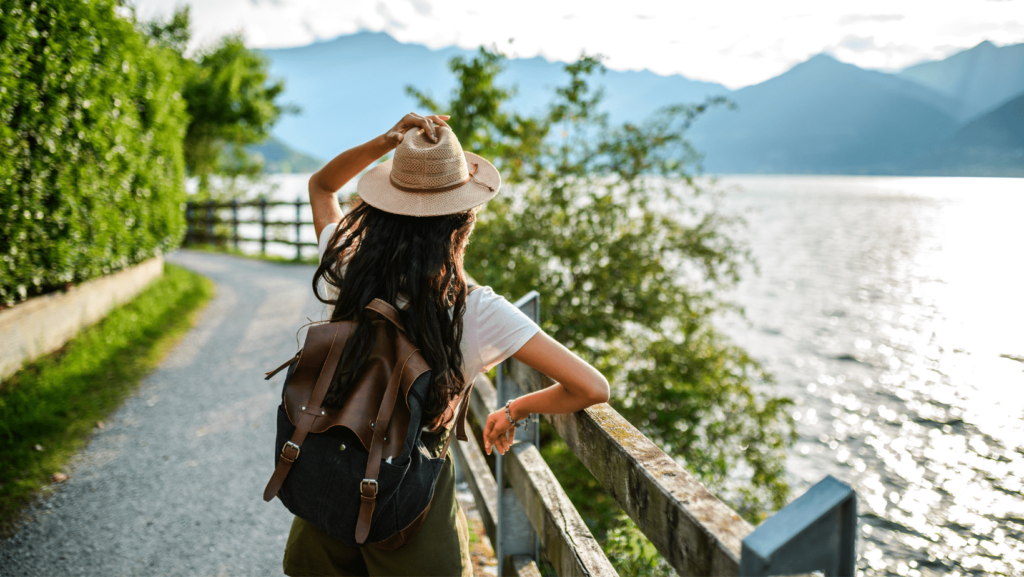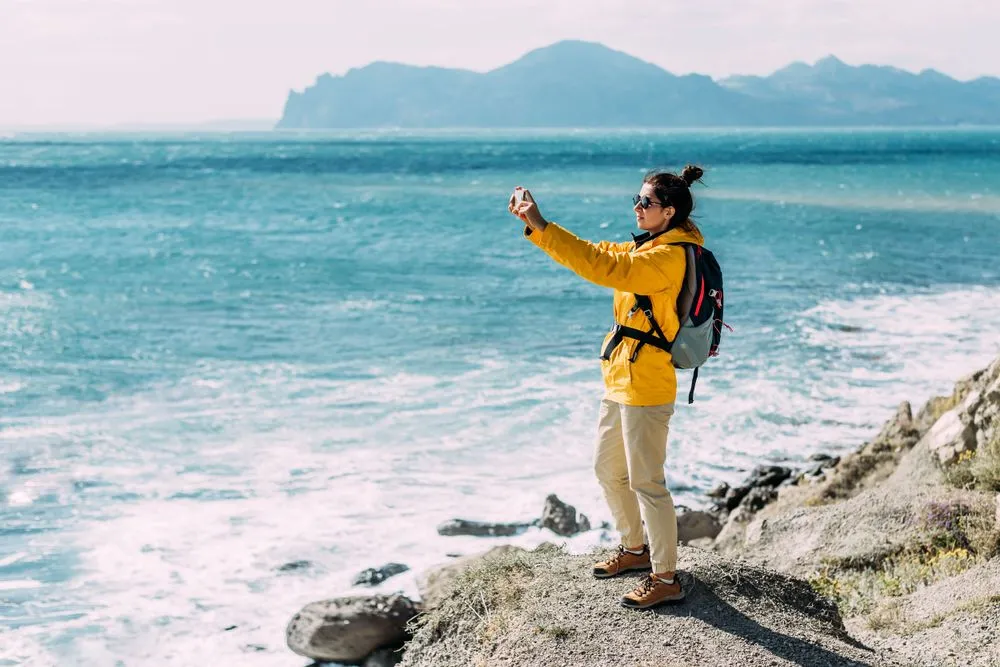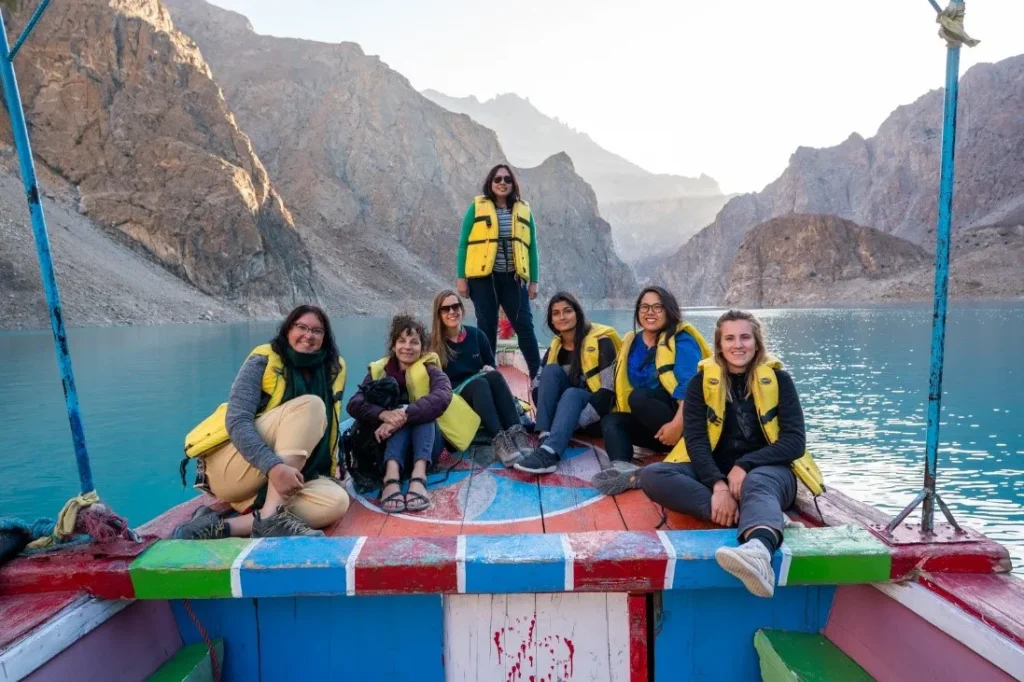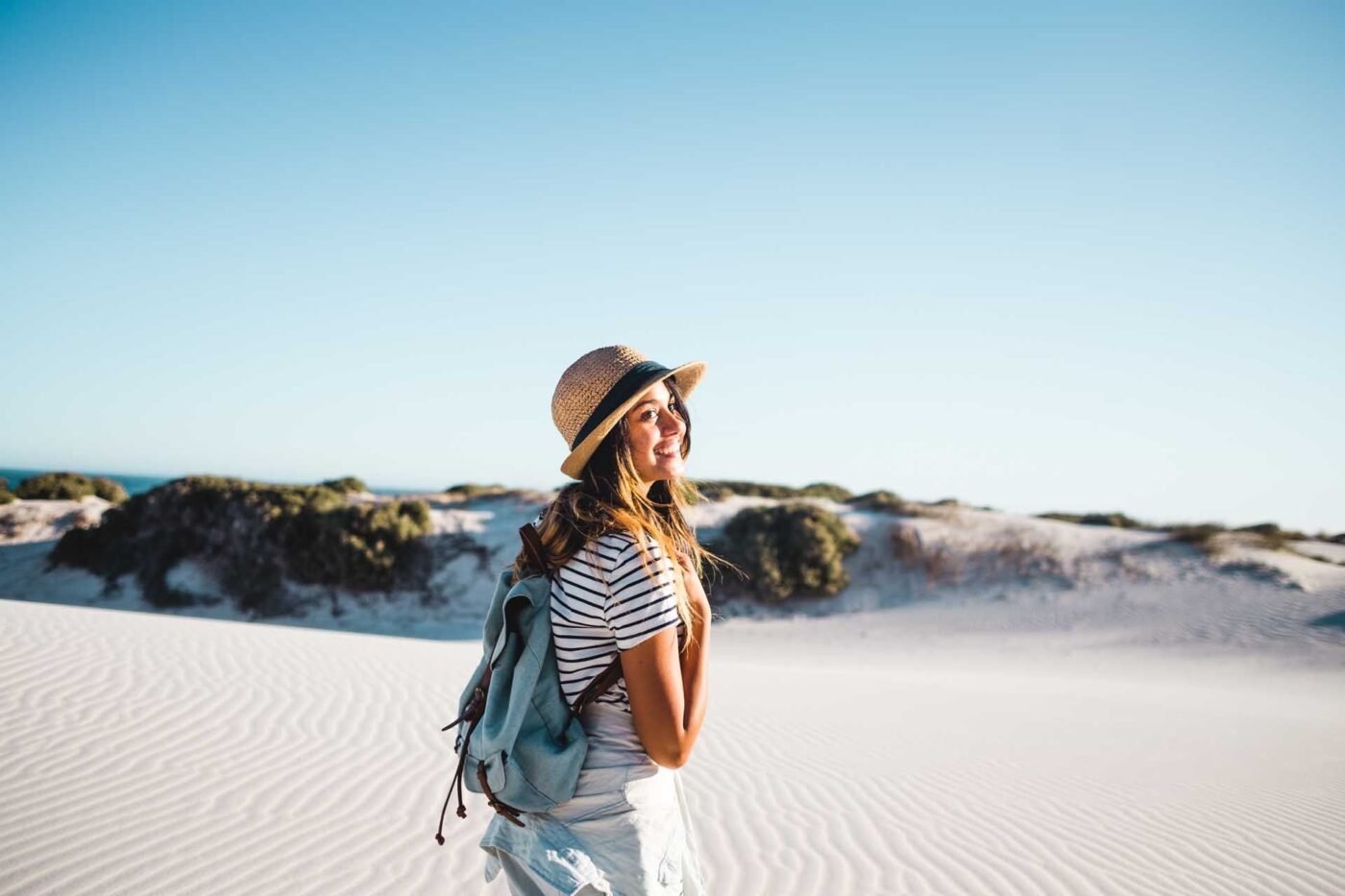First-time solo trips are exciting and empowering. Traveling alone lets you explore the world your way. You can decide what to do, where to go, and how fast or slow to go. It’s a chance to step out of your comfort zone and learn more about yourself. Solo travel helps you build confidence by handling new situations and making decisions. You’ll also pick up skills like solving problems and adjusting to change. Along the way, you might meet new people and have unexpected experiences. It’s a journey of independence and growth. Solo travel can change you in amazing ways.
Table of Content:
- Let Go of Fear
- Do Your Research
- Talk to Other Solo Travelers
- Visit Places with a Developed Tourism Infrastructure
- Trust Your Gut
- Leave Your Valuables at Home
- Try Not to Look Like a Tourist
- Split Up Cash and Credit Cards
- Don’t Get Intoxicated or Walk Around Alone at Night
- Have a Plan B (for Your First Solo Trip, and Always)
- Do a Practice First Solo Trip
First Solo Trip Tips

1. Let Go of Fear
If fear is stopping you from planning your solo trip, start by thinking about what scares you. Are you afraid of being lonely, missing home, or losing money? Once you know, you can plan to feel better. Stay in hostels to meet people if you’re worried about being alone. Plan calls with family or friends if you’ll miss home. Keep extra cash or a backup card if you’re worried about money. Taking small steps can make your fears smaller. With a little planning, you can feel ready and excited. Solo travel is worth it!
2. Do Your Research

Planning ahead is one of the best ways to ensure everything goes well on your trip. Researching your destination helps you feel confident and stay safe while exploring. It’s important to know the best areas to stay in and the main tourist spots. You’ll also want to discover where to find great food and how to meet other travelers. Knowing which areas to avoid for safety is essential. Using forums and Facebook groups for your destination is a great way to get advice from people who’ve been there. You can ask questions and read valuable tips from fellow travelers. This will make your trip smoother and more enjoyable. Proper planning ensures a safer, more rewarding experience.
3. Talk to Other Solo Travelers
Talking to travelers who’ve recently visited your destination is one of the best ways to learn about it. They can recommend hotels, restaurants, and services they’ve used themselves. Their advice is based on real experiences, which can help you make better choices. There are many travel groups like Solo Female Traveler Network and We Are Travel Girls where you can ask for tips. These groups have people who are happy to share their experiences. Getting advice from them will help you plan a better trip. It’s a great way to get useful information and feel more ready. Connecting with other travelers helps you make good travel decisions.
4. Visit Places with a Developed Tourism Infrastructure

For your first solo trip, it’s best to choose a place that’s popular with tourists. In these places, locals are used to visitors, and many people speak English, which makes things easier if you don’t know the language. You’ll find it simple to book activities, stay in nice accommodations, and meet other travelers. Tourist-friendly destinations are designed to make your trip smooth and fun. Good options include the US, Canada, Mexico, Costa Rica, western Europe, Australia, New Zealand, and Southeast Asia, like Thailand and Indonesia. These places offer adventure, culture, and comfort. Picking the right spot will make your first solo trip enjoyable and easy.
5. Trust Your Gut
When you find yourself in an unusual situation, always trust your gut instinct. That first feeling you get is often right. If someone you meet or a situation feels a bit “off” or uncomfortable, listen to that feeling and remove yourself immediately. It’s better to be cautious than to take risks that could lead to trouble. Trusting your intuition can protect you from bigger issues down the road. Your instincts are a powerful tool for staying safe. Pay attention to them, even if you can’t explain why you feel uneasy. Walking away could save you from unnecessary harm. Always prioritize your safety.
6. Leave Your Valuables at Home
When traveling, it’s better to leave valuables at home, especially if they might make you a target. You may need your phone, but you don’t need to bring all your expensive jewelry. Only pack what’s really necessary. If something is special or sentimental, it’s safer to keep it at home. Bringing fewer valuables reduces the risk of losing them or having them stolen. Travel light and focus on what you truly need. This way, you can enjoy your trip without extra worry. Keep things simple and safe.
7. Try Not to Look Like a Tourist
Looking confident can help keep you safe. Thieves usually target people who look lost or unsure. Check your map before leaving your hotel so you know where you’re going. Walk with purpose, make eye contact, and stay aware of your surroundings. If someone is behind you, pay attention. Don’t stop in the street to look at a big map. Go into a shop or quiet spot if you need to check directions. Staying alert and prepared makes you less of a target.
8. Split Up Cash and Credit Cards
When traveling, whether it’s your first solo trip or not, it’s a good idea to carry a mix of debit or credit cards and cash. But don’t make the mistake of keeping everything in one place. I always split my money and cards up—some are in my purse, while the rest are in my suitcase or the hotel safe. This ensures that if I lose my purse or get pickpocketed, I’ll still have access to cash. It’s a smart way to stay prepared and avoid problems. Having extra money on hand can help you feel more secure during your trip. This simple strategy keeps you covered no matter what.
9. Don’t Get Intoxicated or Walk Around Alone at Night
It’s not safe to get too drunk or walk alone at night, no matter where you are. If you’re out late, always use a taxi or Uber to get back to your place. Don’t drink too much so you stay in control. Be aware of what’s happening around you, especially in places you don’t know. Stay with friends if you can, and plan how you’ll get home. Trust your instincts and stay safe. Your safety is the most important thing while traveling.
10. Have a Plan B (for Your First Solo Trip, and Always)
Travel doesn’t always go as planned, and you might have to make some changes along the way. Your flight could get canceled, leaving you stuck in an unfamiliar city for a day, or your Airbnb host might not be there when you arrive. While travel is meant to be spontaneous, it’s smart to have a backup plan in case things don’t go as expected. Having a Plan B can help you stay calm and find a solution quickly. Whether it’s knowing where to stay or having extra transportation options, being prepared will save you stress. Embrace the unexpected, but always have a safety net. A little flexibility goes a long way.
11. Do a Practice First Solo Trip
If you’re not ready to travel to another country alone, try a solo trip in your own country first. It’s a good way to get used to traveling on your own where you know the language and how things work. This can help you feel more confident and less worried. You’ll learn how to plan, get around, and enjoy being by yourself. Once you feel comfortable, you’ll be ready for your big solo trip abroad. It’s a great way to practice and build confidence before traveling far.



Leave a Comment